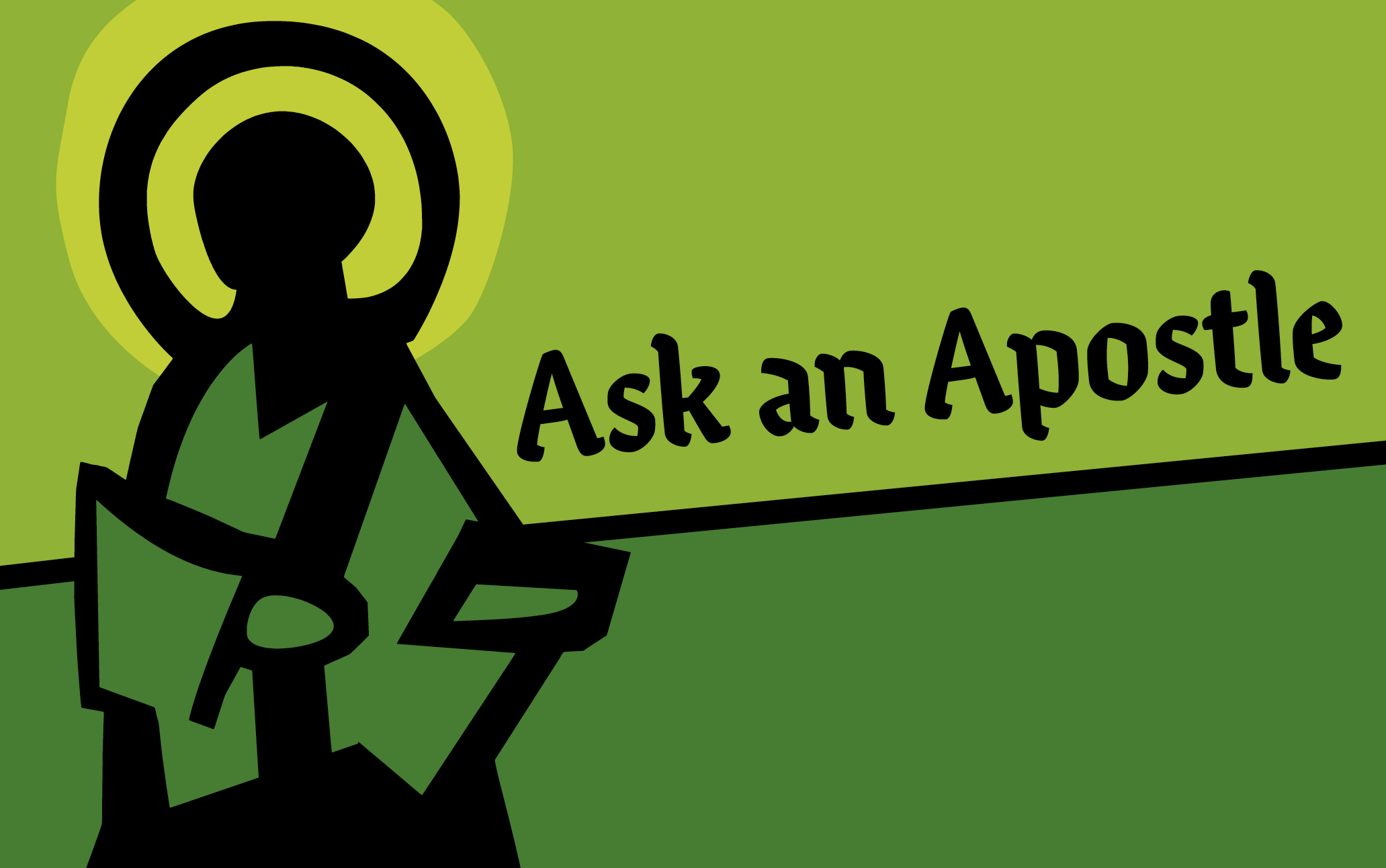Got a burning question? Click here to Ask an Apostle.
Q: I want to participate in the Lenten fast from meat on Fridays, but my doctor says not eating meat could be bad for my health. Is there some other fast I could do instead?
—Low Iron Lady
A: Fasting is an important part of the Christian tradition and it’s wonderful to hear that you want to participate in the Lenten fast. Of course, when we think of the Lenten fast we think of Jesus in the desert for 40 days and nights preparing for his public ministry. There are many different deserts we experience throughout our lives. The desert of illness, the desert of poverty, the desert of loneliness. During this COVID-19 pandemic we have been experiencing so many different types of deserts in our lives. In this desert we have been fasting from some of the most meaningful aspects of life like separation from family and loved ones.
That is a very big sacrifice. Sometimes we are fasting without even realizing it. In these instances, it’s helpful to name our fasting experience and consciously bring God into our experience of fasting. God’s grace is there to help us through those desert experiences. So, you may be fasting in a significant way already without realizing it.
It’s also important to remember that God doesn’t desire our suffering. Instead, God wants us to grow, and through our growth to nurture others along our life’s journey. When I look at our world today and ponder what type of “fasting” might be most meaningful in our neighborhoods and communities, I think fasting from demonizing people who have different views than we do would be a good start. Fasting from judging a neighbor based upon what sign they put in their yard or bumper sticker they put on their vehicle, or fasting from negative and judgmental talk would be helpful as well.
Fasting is a reminder of our dependence upon God and an attempt to nurture solidarity with others. So, what kind of fasting can you do that will draw you closer to God and your neighbor?
—John Christman, S.S.S.
Q: I’ve recently heard that the devil can’t hear our hearts/minds, only God can, but because of this there are prayers that must be said out loud. One, is this true? Two, what are the prayers and how do they protect us differently than other prayers for protection from evil?
—Bothered by Beelzebub
A: What an interesting question! I’ve never heard of this idea before—that there are certain prayers that must be said out loud in order for the devil to hear them, and that they protect us from evil in a unique way—and I must admit that your inquiry sent me down an internet rabbit hole that was dizzyingly windy and rather musty. Now that those couple of hours are gone, I can report: it seems that a handful of evangelical bloggers are writing about this idea, but there is no mention of it (at least that I could find) in the Bible or the Vatican archives. In other words, if there are certain prayers that we must say out loud to protect ourselves from evil, our institutional church is keeping them secret.
Now, to editorialize a bit, something that troubled me as I made my way through the aforementioned rabbit hole was the tendency of writers to personify evil (picture an ugly little devil who cheats, lies and steals, but who is made helpless when hit with the right verbal sword). This doesn’t sit right with me because, frankly, it just doesn’t make sense. If eliminating evil were as simple as the recitation of a few words, would racism in our supposedly advanced country continue to crush the bodies and souls of people of color every day? Would 9 million people die of hunger annually, despite the world producing enough resources for all global citizens to be adequately nourished? Maybe if, instead of thinking of evil as a single demon, we instead recognized it as a pervasive force that insidiously weaves its way into our institutions, systems, and psyches, we might be more open to taking steps that combat evil in practical ways. It would be easier to mutter a prayer aloud than to confront the ways in which I am complicit with white supremacy and individual/corporate greed, but my hunch is that the latter will do more than the former to combat evils like world hunger and systemic racism.
—Teresa Coda
Q: Some people at my parish address our pastor by his first name. He doesn’t seem to mind, but is it wrong to not address him as “Father”?
—Forgive me, Father
A: There is actually only one person who has the authority to answer this question, and that person is your pastor. His power comes not from his ordination or from his depth of knowledge regarding church teaching, but rather, from the fact that he is the one person who knows what he wants to be called. There is no doctrine stating what a priest should or should not be called, and so just like I’m allowed to say, “Yes to T, no to Terry, and I prefer Ms. To Mrs.,” your priest gets to choose how to be addressed.
—Teresa Coda













Add comment